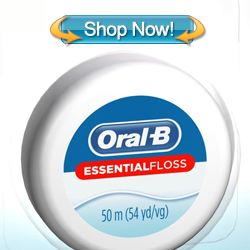Your dentist may be telling you that you are in need of an orthodontist and this may leave your mind blank or might bring up vague images of wire braces from friends in your teenage years. The simple answer is that orthodontia is the specialty in dental medicine that deals with the straightening and correcting of the misalignments of the teeth. This can include crooked teeth, crowded teeth, teeth that have too much space between them or irregular bites (such as an over bite or under bite). While orthodontic care is more common in the adolescent years there are many adults that find themselves in need either because their concerns with not caught in the past or because the recent events have caused changes to the alignment of teeth, such as the crowding possible due to impacted wisdom teeth or external trauma to the mouth.
Wire dental brace are still the most common form of braces used in the orthodontic field. Over the years these braces have been vastly improved and while there is an increased measure of care involved with them they are not the hassle that they may have been twenty or even ten years ago. These braces offer a wide range of colors and are still considered to be the best and most accurate way to correct the misalignment of teeth. Other options include Invasalign, which is a clear plastic aligner that is fitted for the specific abnormalities of your mouth. New aligners a created with minor adjustments to gently direct the correction of abnormalities. While these aligners can be effective they do require more care and have proven to be unsuitable for a number of patients. Another dental treatment in this field is known as Suresmile and is 3-D imaging services that includes the aid of a robot and is said to significant shorten the time required for straightening teeth.
An orthodontic professional can also recommend the use of additional removable straightening and corrective appliances such as expansion appliances, headgear and a wide range of other corrective devices. One of the most common of these continued aligning appliances is that of the retainer, a device that is fitted to your specific palate and then used, generally at night, to either continue alignment or to keep previous orthodontic alignments in place. Retainers are common amongst those that have worn braces in the past.
Unfortunately, many dental insurance plans consider the more common aspects of orthodontia, such as braces, to be cosmetic concerns and may only offer partial to no coverage for orthodontic visits and procedures. The exception to this rule includes teeth that are so crooked or misaligned as to cause health concerns such as jutting teeth that cause contusions or severe cutting to the lips or the inside of the mouth or orthodontic measures required after severe trauma to the mouth or jaw after such events as car accidents or physical assaults. Often dental insurance agencies will require written consent of such needs from a medical professional.
Luckily, most orthodontic offices are more than willing to work with you outside of your dental insurance coverage by offering discounts and reasonable payment plans. While aligning teeth may still be considered a cosmetic dental measure the truth is that many have felt the need to have their teeth corrected and it is not a vain or unnecessary step as far as thousands of people are concerned. Your smile is a big part of how you are seen by those around you and it makes complete sense that those with severe misalignments seek to have them corrected. It is important to get recommendations from friends and to research potential orthodontic practices thoroughly before devoting any money to one. A proper orthodontist will be willing to go through your specific needs step by step and will not recommend unnecessary procedures just to pad his or her own bank account. A reputable office will offer reasonable discounts and payment plans. Beware of offices that offer too good to be true prices as they will normally have some way of taking advantage of you hiding in the fine print. Overall, pay attention to your own intuition. You should be able to tell when you are being “sold” instead of assisted.


